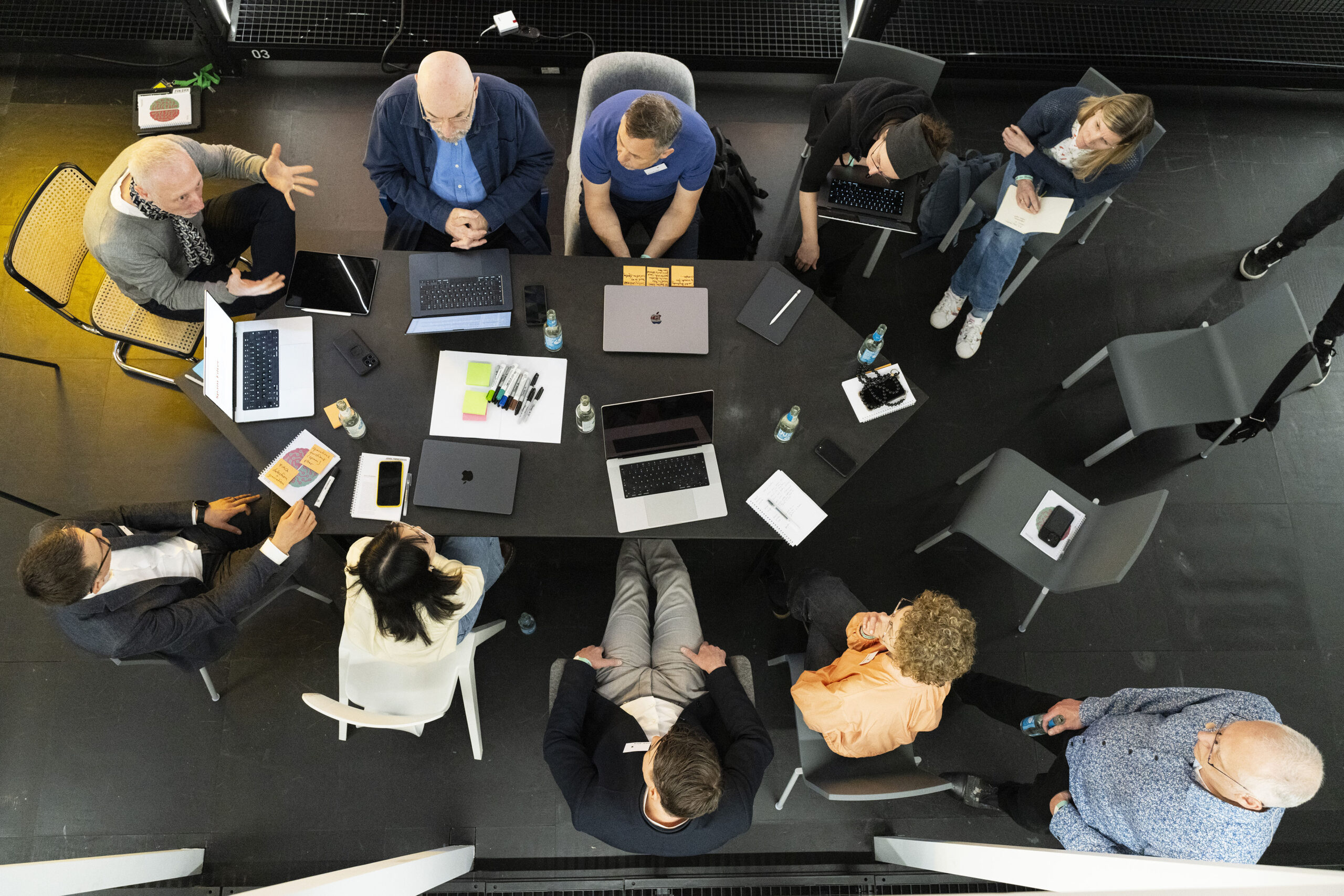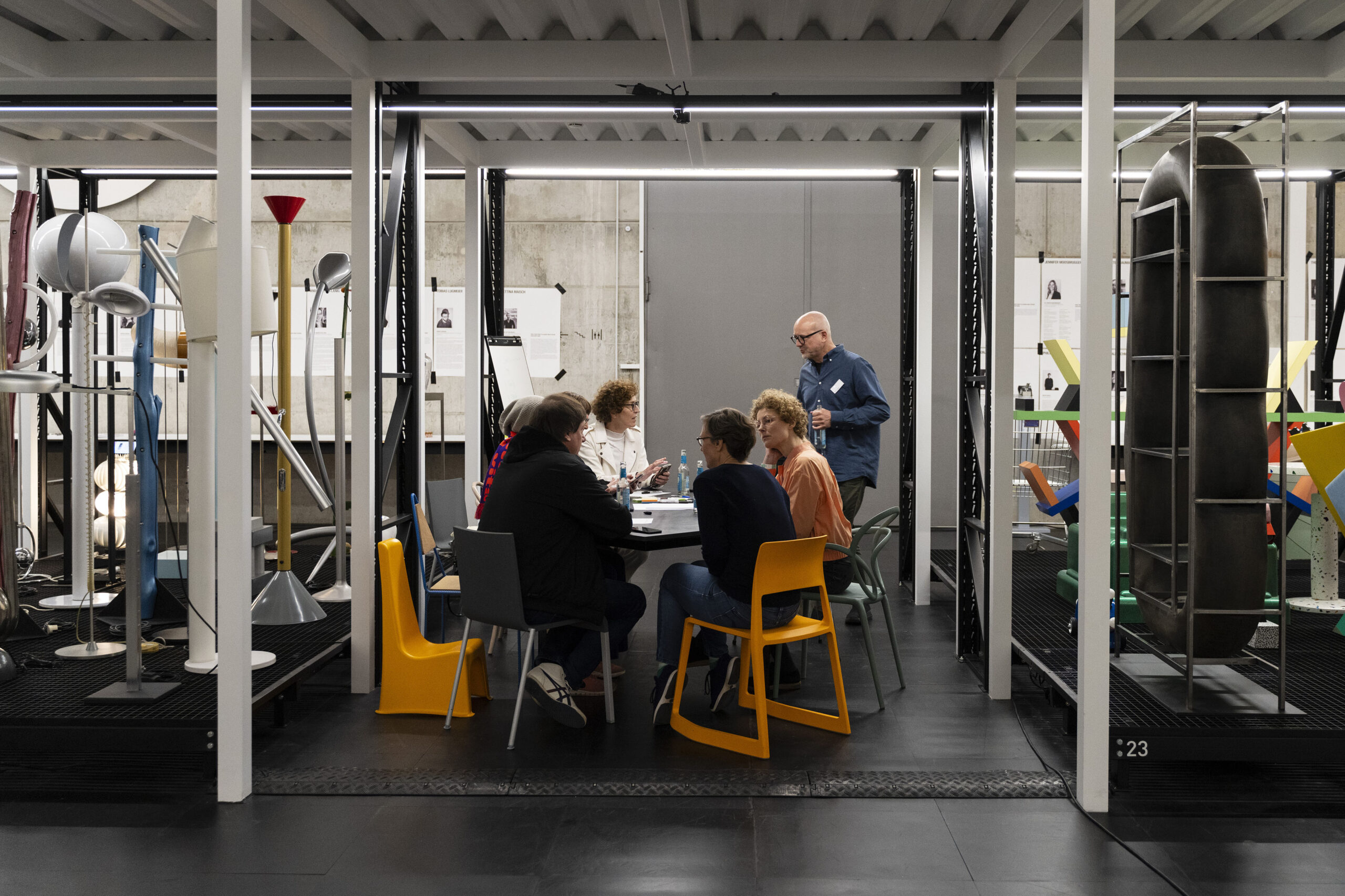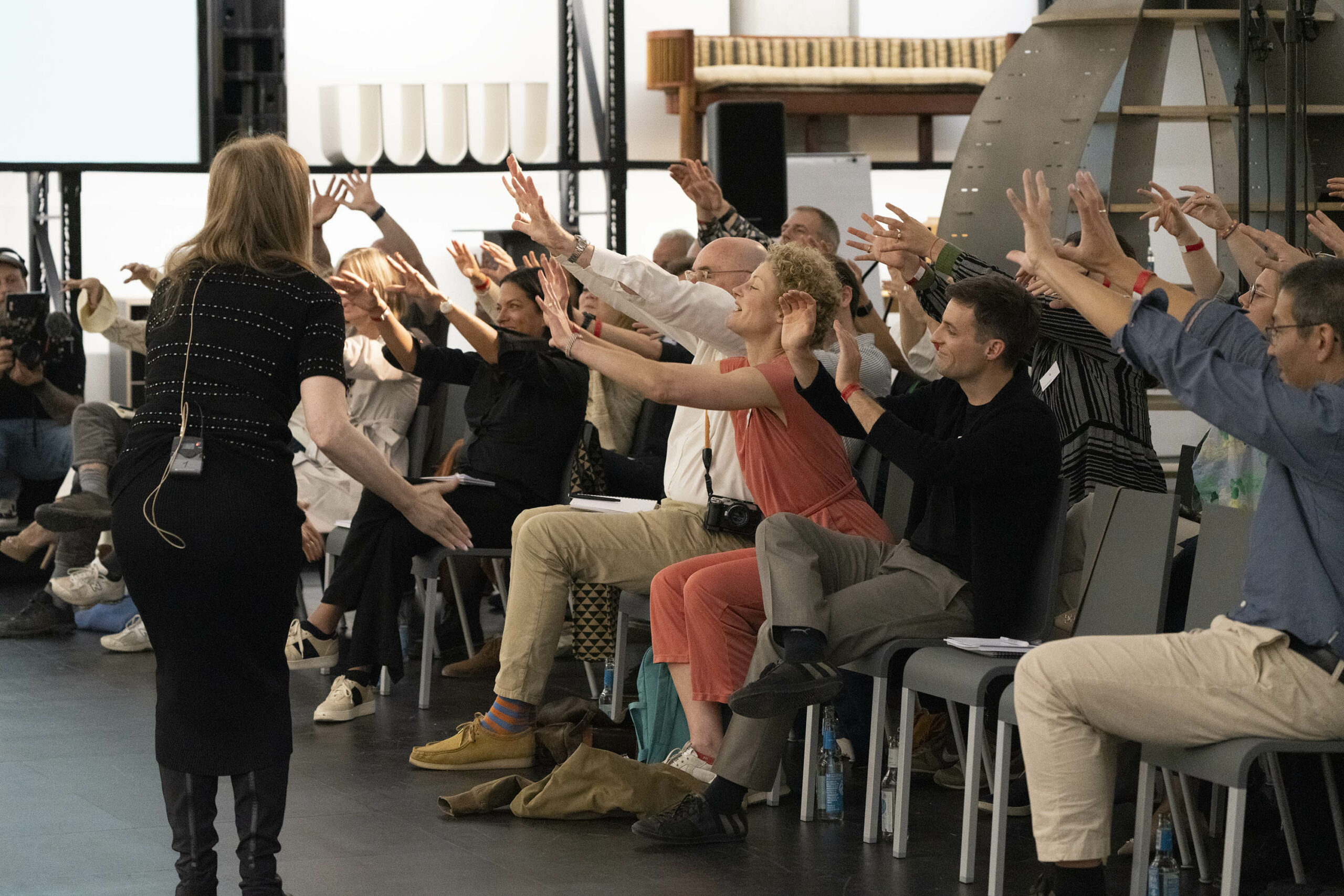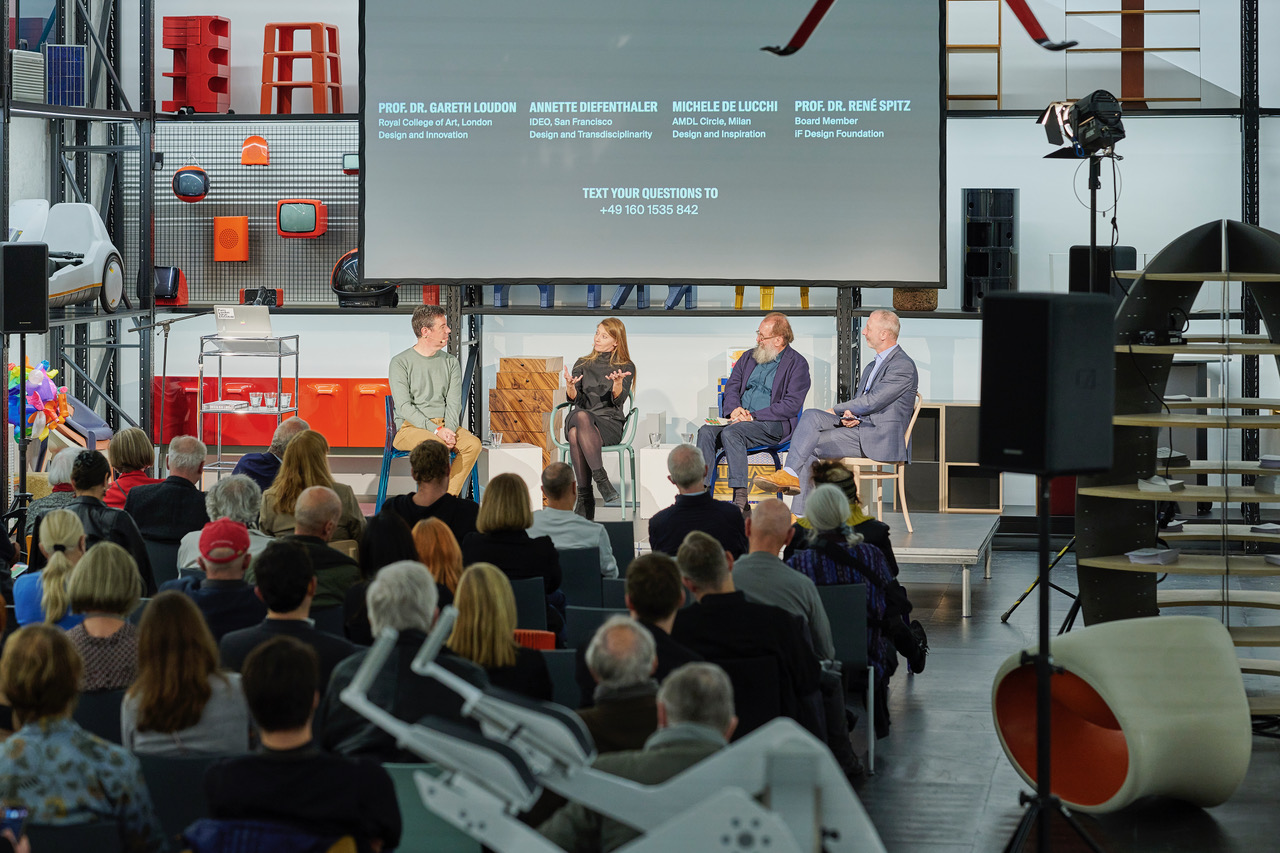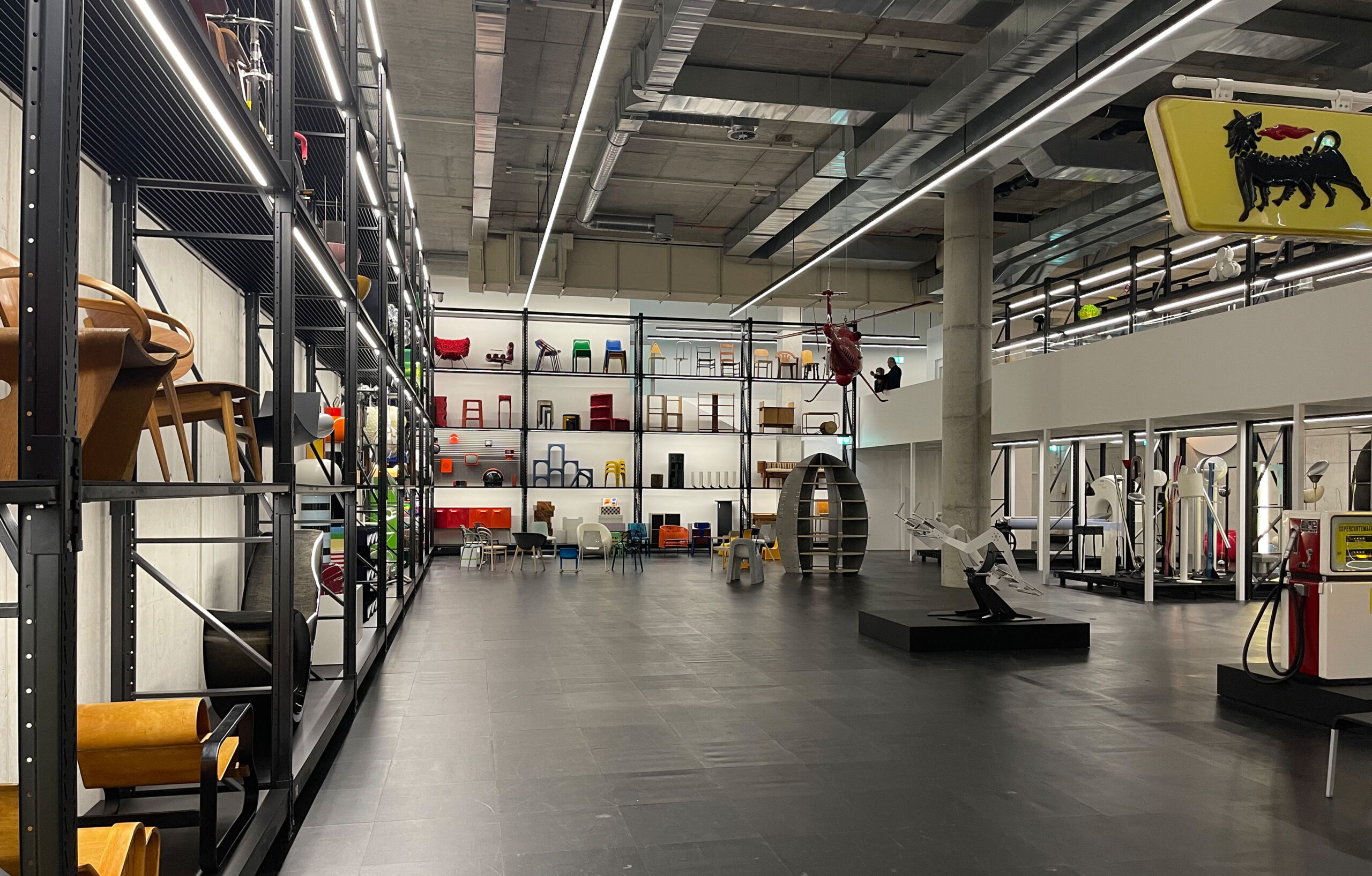Table of Contents
21.-23.03.2023
Impulses for a new curriculum, part 1
Learning and teaching sciences
Learning and Teaching Sciences: research-based findings and methods proven in practice for experiences conducive to learning
The approximately 30 participants who attended the Learning and Teaching Sciences focus event represent the broad spectrum of activities associated with design: teaching and research (predominantly), but also design practice (independent and employed), consulting, management, exhibitions, and journalism.
Learning Experience Design
The first impulse on the subject of "Learning Experience Design" was provided by Dr. Colin Beard, professor of Experiential Learning at Sheffield Hallam University. He is an internationally recognized consultant, author and experienced practitioner in the field of learning supported by personal experience. Colin has worked with many organizations, including the Foreign Service Department of the US Government, which works on the training of diplomats and ambassadors. In his impulse talk, he presented a broad, holistic approach to human learning that encompasses multiple human faculties that should be utilized in the structuring of learning experiences. In his presentation of the theoretical fundamentals, he explained some principles for structuring situations that are conducive to learning. The subsequent workshop provided an opportunity to apply these theories in the context of design education: for example, a group was asked to develop a visualization of the concept of a circular economy using an assortment of industrial products that were placed on the table. The cognitive processes within the groups were assisted by the use of aids and cues, which were based on spatial metaphors.
Materiality of Learning
The second impulse talk on "Materiality of Learning" was given by Dr. Anna Keune at the Technical University of Munich. In her research at the interface of learning and design science, she studies design technologies and materials for in-school and out-of-school learning. She aims to further the understanding of the gendered materiality of STEM learning and to improve the design of educational technologies that support all learners. In her talk, she outlined the state of research on the non-neutral role of tools and materials in learning. This was followed by a workshop on experimenting with methods to integrate general values such as empathy and diversity into design education.
Growth mindset
The third impulse talk brought up another facet of the Learning and Teaching Sciences thematic spectrum. A psychologist with a PhD in business administration, Dr. Blanka Tacer, founding member of the STEP Institute in Ljubljana, Slovenia, focused attention on the "Growth Mindset". As an expert in the ongoing professional development of educators, she assumes that this mindset is crucial for active learning: when teachers are convinced that students can actually meet the high expectations placed on them, it strengthens not only their learning ability, but also their critical thinking and creativity. In her workshop, practical concepts were developed with which the "growth mindset" theme can itself become the subject of courses.
Impact measurement
The fourth impulse on "Impact Measurement" came directly from the interface of business and science: Larry Corrio heads Impact Measurement at IDEO in San Francisco. Previously, he was Senior Program Manager at the University of California, a policy consultant at the New Schools Venture Fund, and a research consultant at the Institute of International Education; he was also a graduate lecturer at California State University, Northridge and a teacher and administrator at Bishop Mora Salesian High School in Los Angeles. In his talk, he first presented approaches to measuring contributions in learning situations. In his workshop, new assessment tools were developed for a variety of parameters, which are relevant to design practice (e.g., passion, collaborative experimentation, abstraction skills) but which cannot be adequately assessed through exams or papers: for example, a cube of diversity, a finger point of curiosity, or a shell of openness and self-reflection.
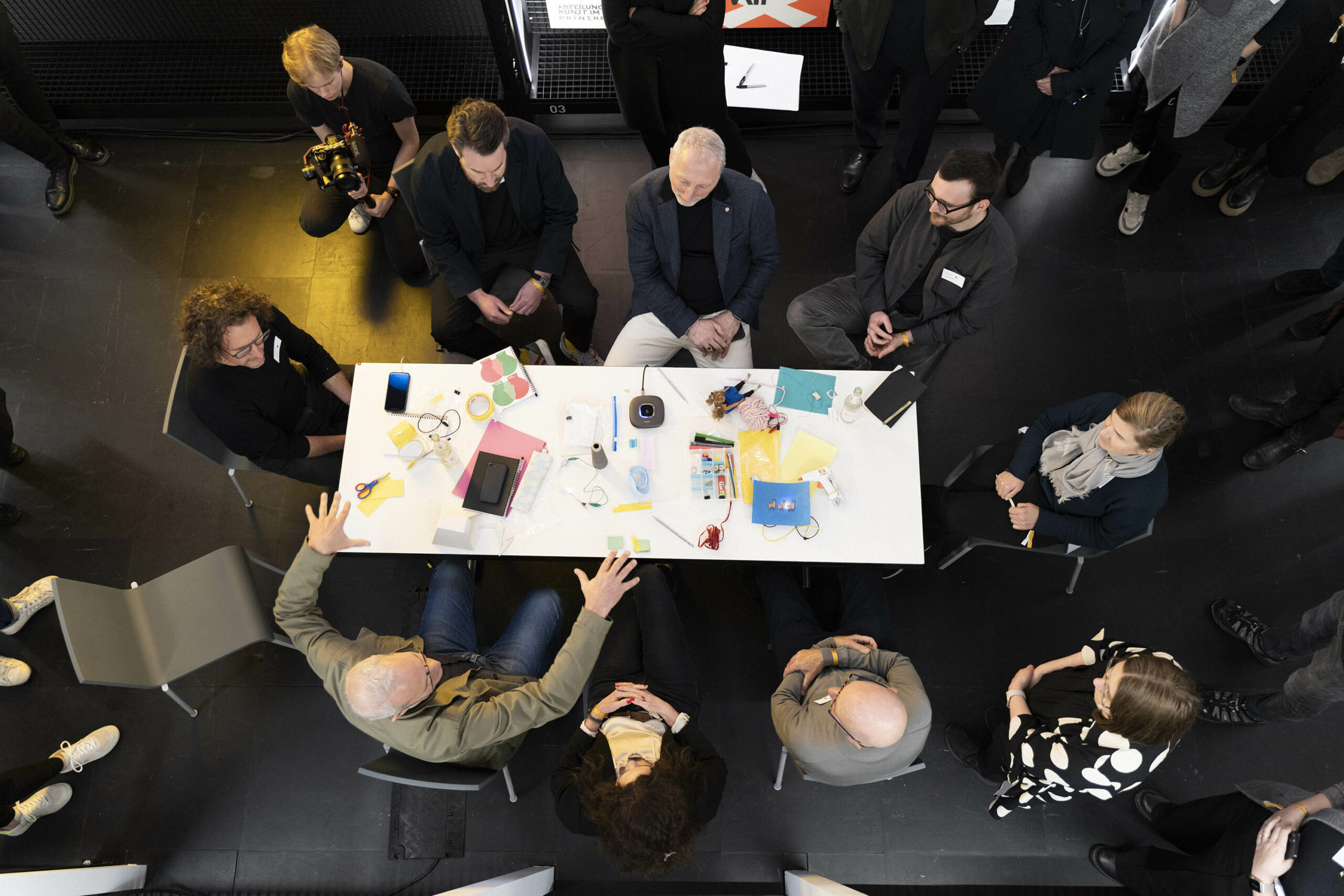
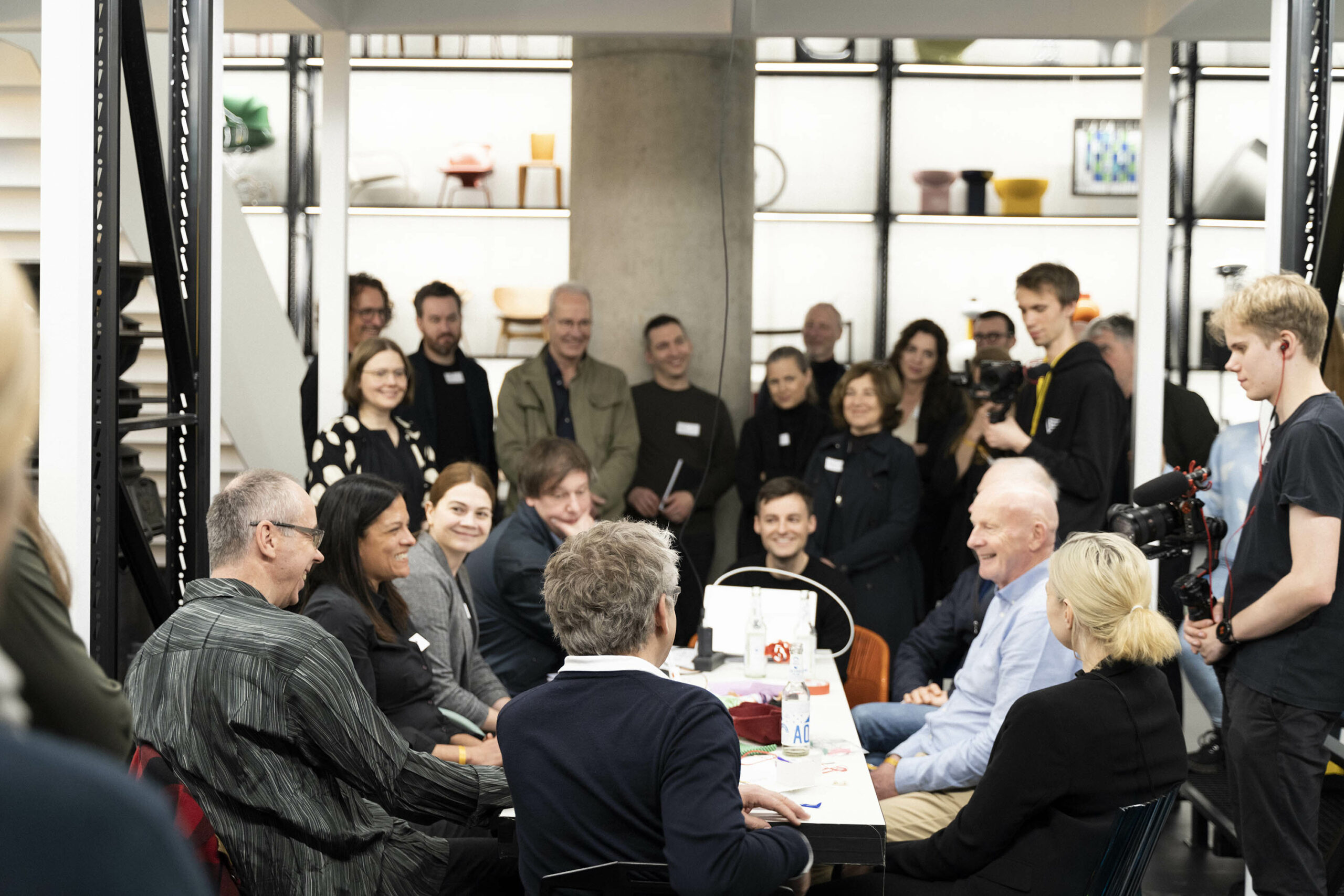
Feedback from participants
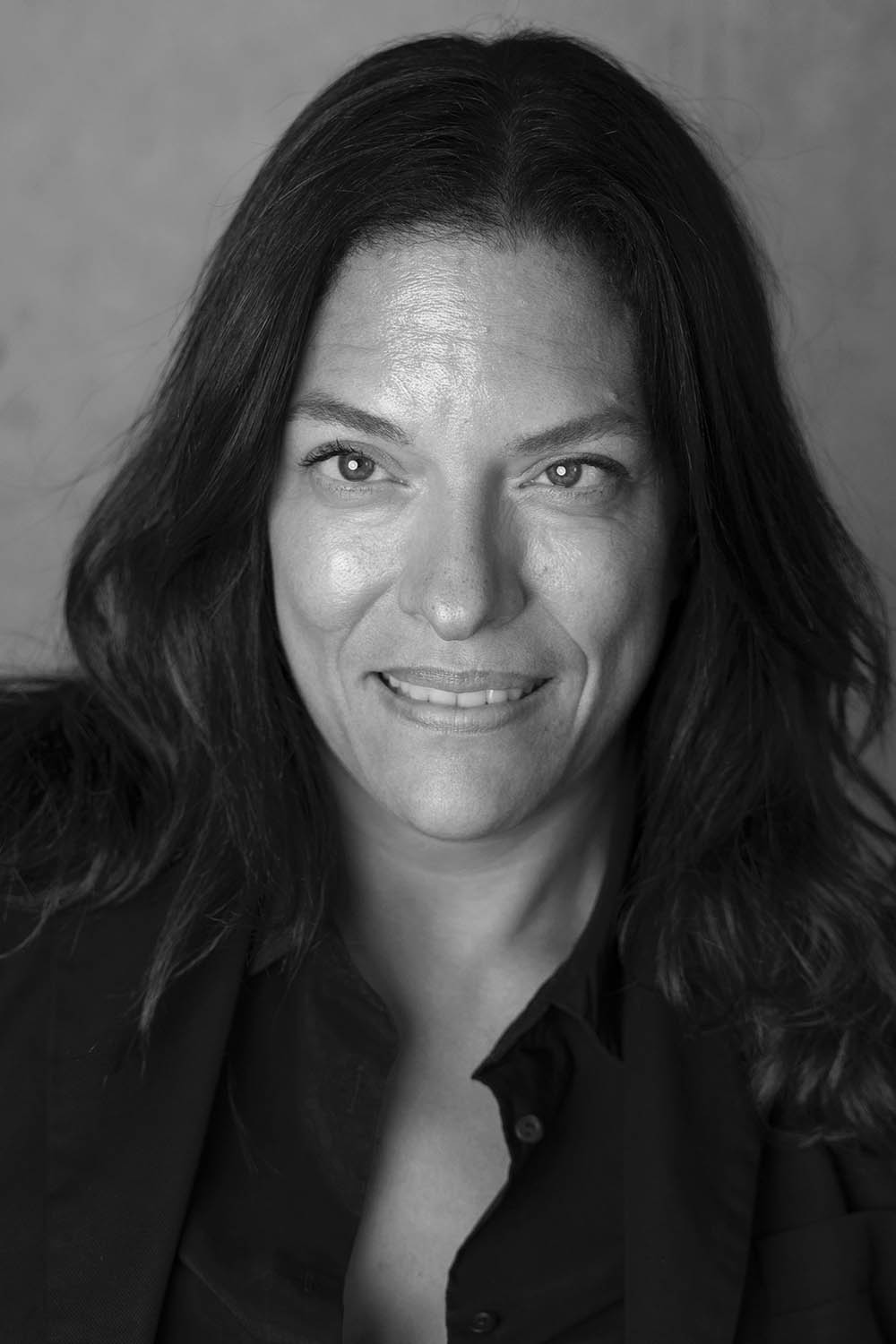
Prof. Tanja Schmitt-Fumian
»In today's rapidly evolving world, it's becoming increasingly important for educators to discuss the current state and future of design education. This includes understanding how knowledge is shaped and generated within the design discipline, broadening our understanding of design to encompass the deeper significance of objects, recognizing the pivotal role of designers as authorities on quality across products, services, and organizations, and emphasizing the need for designers to be 'system thinkers' to effectively guide design toward holistic sustainability, covering ecological, social, and economic facets.
Teaming up with international experts and partners to innovate design studies truly stands out. In all the events I've attended, it's rare to see such an international consortium of experienced educators take the time to deeply discuss the future of design education, especially with a curricular focus.
Having been involved in the accreditation of one of the pioneering fully-online design programs, I can attest to the significance of these efforts. The networking opportunities offered were invaluable and have provided great insights.«
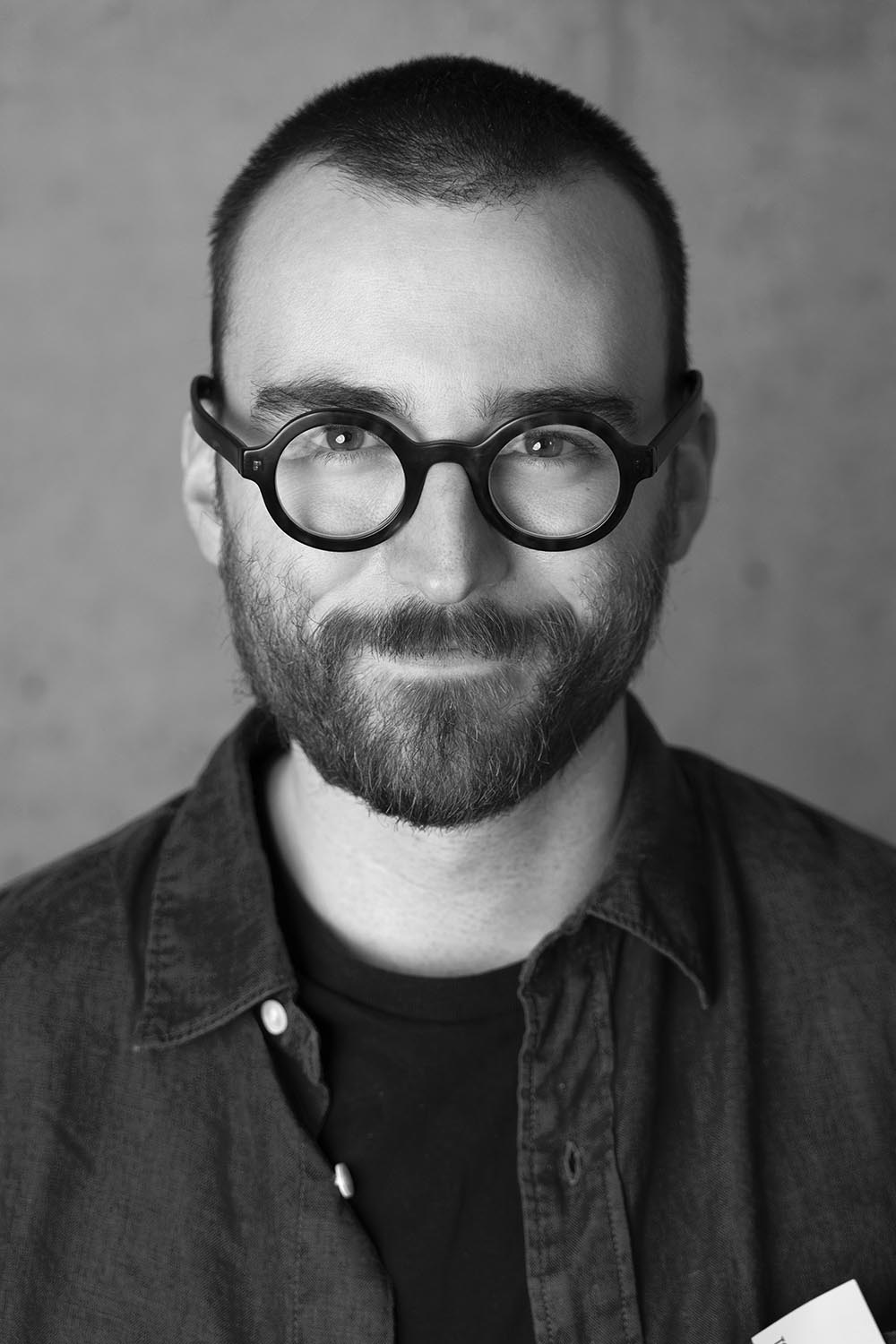
Tobias Lugmeier
»I am inspired by the task that the iF Foundation has set itself – and the seriousness, dedication and systematic approach with which it approaches it. The deconstruction and reorganisation of design theory is a very complex task that can only be accomplished – if at all – collectively, in open discourse and with as many different participants as possible.
I have a strong personal interest in understanding how the design profession and, accordingly, design teaching can / must develop, and would therefore like to be involved in the project as frequently as possible. After all, the topic is more multifaceted than a single event can even begin to cover – and this is precisely where the appeal of the symposia lies: creating an overall picture piece by piece, topic by topic.
The symposium/workshop format is particularly appealing to me because it brings together people from different areas and with different experiences to think together about a desirable future – and what role design will play in it. Above all, what is heard, seen and thought has a direct effect on the present, because it can be carried directly from the workshops into reality (design teaching).«
The symposium
A symposium open to the public summarizes the results of a learning-intensive day of workshops and invites the audience to participate in the discussion.
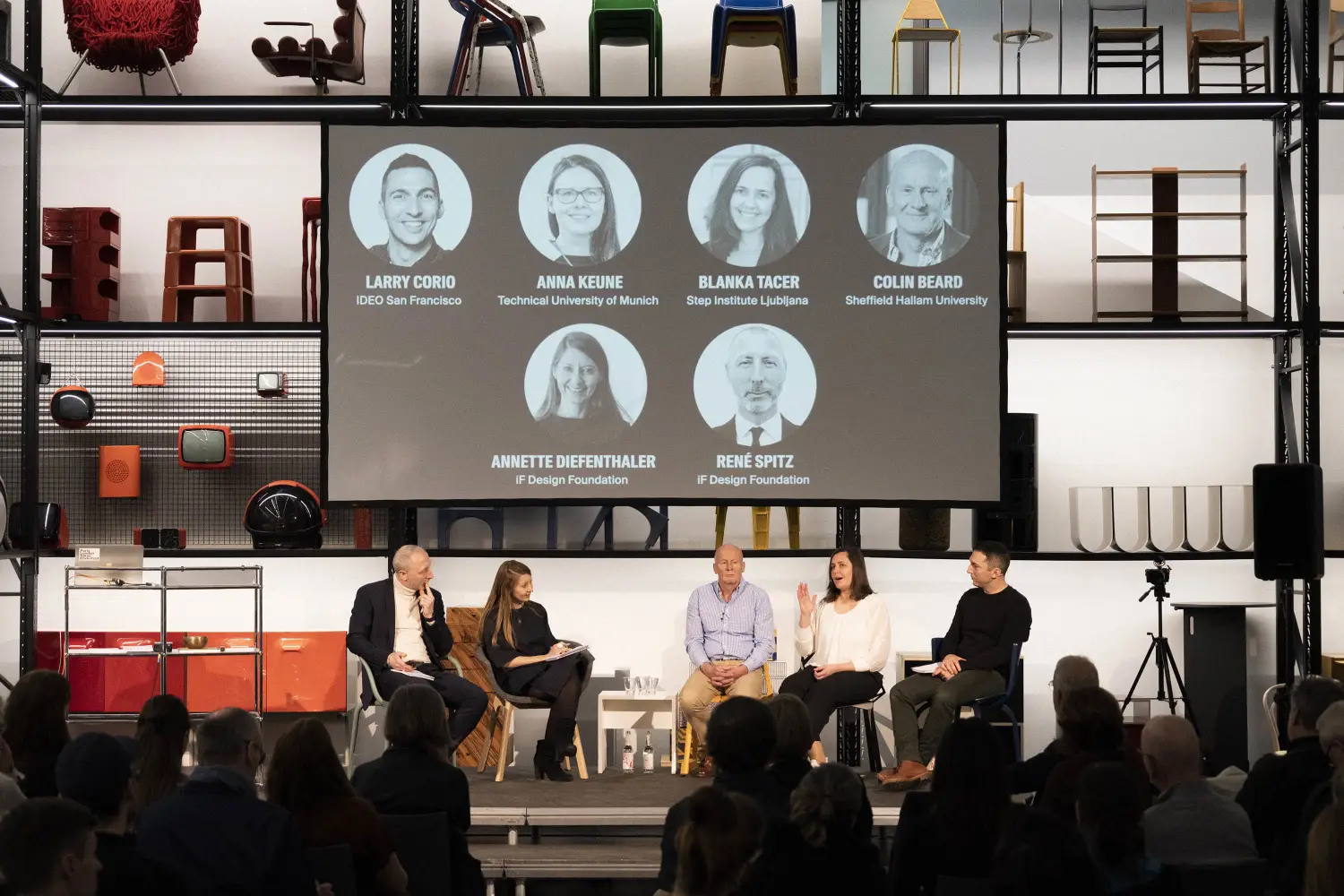
Each campus event ends with a symposium, which is open to the public and takes place at the X-D-E-P-O-T of the Pinakothek der Moderne, the findings of the workshops are considered and discussed together with the audience. Blanka Tacer reiterated that ‘talent’ was the biggest and most damaging myth in education. She highlighted the importance of the growth mindset for learning and outlined the current level of scientific knowledge in that field. "What do we need to do to bring a growth mindset into our classrooms?" This was the question of the hosts, Prof. Annette Diefenthaler and Prof. Dr. René Spitz, members of the board of the iF Design Foundation. They asked Colin Beard: "Yesterday you divided us into four groups, gave us a selection of objects and the task of developing a visualization of the circular economy. How did experiential learning manifest itself in this activity?“ Contributions from the audience on aspects of teaching and learning rounded off the specialist discussion.
Speaker »Learning & teaching sciences«
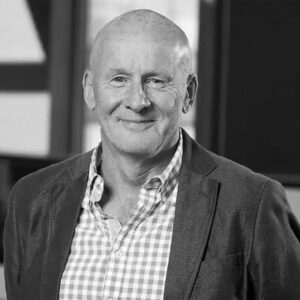
Prof. Colin Beard, PhD
Professor of Experiential Learning at Sheffield Hallam University, United Kingdom
Colin is recognised as a leading global thinker, writer and skilled practitioner in Experiential Learning. He has worked with many organisations advising on learning and development, including the Foreign Service Department of the US Government working on the development of diplomats and ambassadors. He has also advised the Ministry of Education, and Ministry of Youth and Culture in Singapore on educational issues. He has worked with many corporate clients, public bodies, universities and charities. Colin was invited as a member of the European Innovation Team of Interface. Flor, the world’s largest floor textile manufacturer.
His work includes over 60 global keynotes, 19 book chapters, 44 refereed articles, and several books, including an audio book on sensory intelligence, and a 4th edition book on experiential learning. He has held three visiting professorships, including two in leading Chinese universities. He is on the editorial board and reviewing panels of many leading journals. He is a National Teaching Fellow, Chartered Fellow of the CIPD, and Fellow of the Royal Society of Arts.
Recent publication
Experiential Learning Design. Theoretical Foundations and Effective Principles. London: Routledge 2022.

Larry Corio
Head of Impact Measurement at IDEO
Senior Program Manager at University of California, Office of the President; Project Consultant at New Schools Venture Fund; Research Consultant at Institute for International Education; Adjunct Professor at California State University, Northridge; Instructor and Administrator at Bishop Mora Salesian High School in Los Angeles. Facilitated and delivered 10+ conference workshops and talks across the United States and Europe.
MA in Leadership and Policy from Columbia University; M.A. in Secondary Education from Loyola Marymount University; BA in Journalism from Boston College
Recent Publication
It has been approximately two years since I last published, but two notable pieces include a design toolkit that I helped co-produce with colleagues and community members — the Co-Designing Schools Toolkit and an accompanying article on IDEO's website.

Prof. Dr. Anna Keune
Professor of Learning Sciences and Educational Design Technologies at Technical University of Munich, Germany
Anna's research stands at the intersection of learning sciences and design scholarship. She investigates design technologies and materials used for school and out-of-school learning with the aim to advance the understanding of gendered materiality of STEM learning and the design of educational technologies that support all learners. Guided by constructionist and posthumanist theoretical commitments as well as participatory approaches to design, Anna's research focuses on the empirical study of how materials can foster STEM learning, transform what counts as STEM participation, and widen who participates.
Anna received postdoctoral training at the University of California, Irvine, and the Ruhr-University Bochum with a focus on STEM equity and adaptive educational technologies. Prior to this, Anna graduated with a PhD in Learning Sciences from Indiana University in 2020. Her dissertation on fiber crafts as a context for computer science education won the prestigious Indiana University Distinguished PhD Dissertation Award. Anna also studied New Media Art and Design at Aalto University and was a visiting researcher at the University of California, Berkeley, and the Srishti School of Art, Design, and Technology.
Recent publication
Fabric-based computing: (Re)examining the materiality of computer science learning through fiber crafts. In: Artificial Intelligence (2021). DOI: 10.1007/s13218-021-00747-1
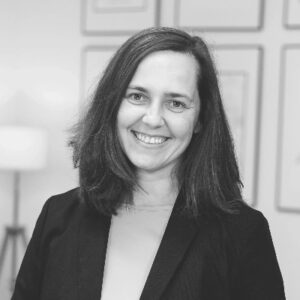
Blanka Tacer, PhD
International teacher trainer, Founding member of STEP Institute, Ljubljana, Slovenia
Blanka Tacer, PhD of business administration and B.Sc. of psychology, has had an extensive career path spanning over 20 years. Her journey began in human resources management in the retail industry, where she was responsible for the selection and internal training system as a psychologist. However, after several years of working in the field of psychological assessment, she decided to pursue a doctoral degree in innovation management in start-ups. Upon completion, she dedicated her time and energy to the continuous professional development of educators, promoting positive education and growth mindset in teaching, which has become her passion.
Since then she encourages teachers to implement innovative teaching practices. She works on international projects and courses to promote positive education and growth mindset in teaching. Blanka believes in promoting active learning by encouraging teachers to use evidence-based approaches that help students develop their skills in critical thinking, problem-solving, and creativity. Through her work, she aims to inspire educators to be lifelong learners themselves and to help their students become the same.

